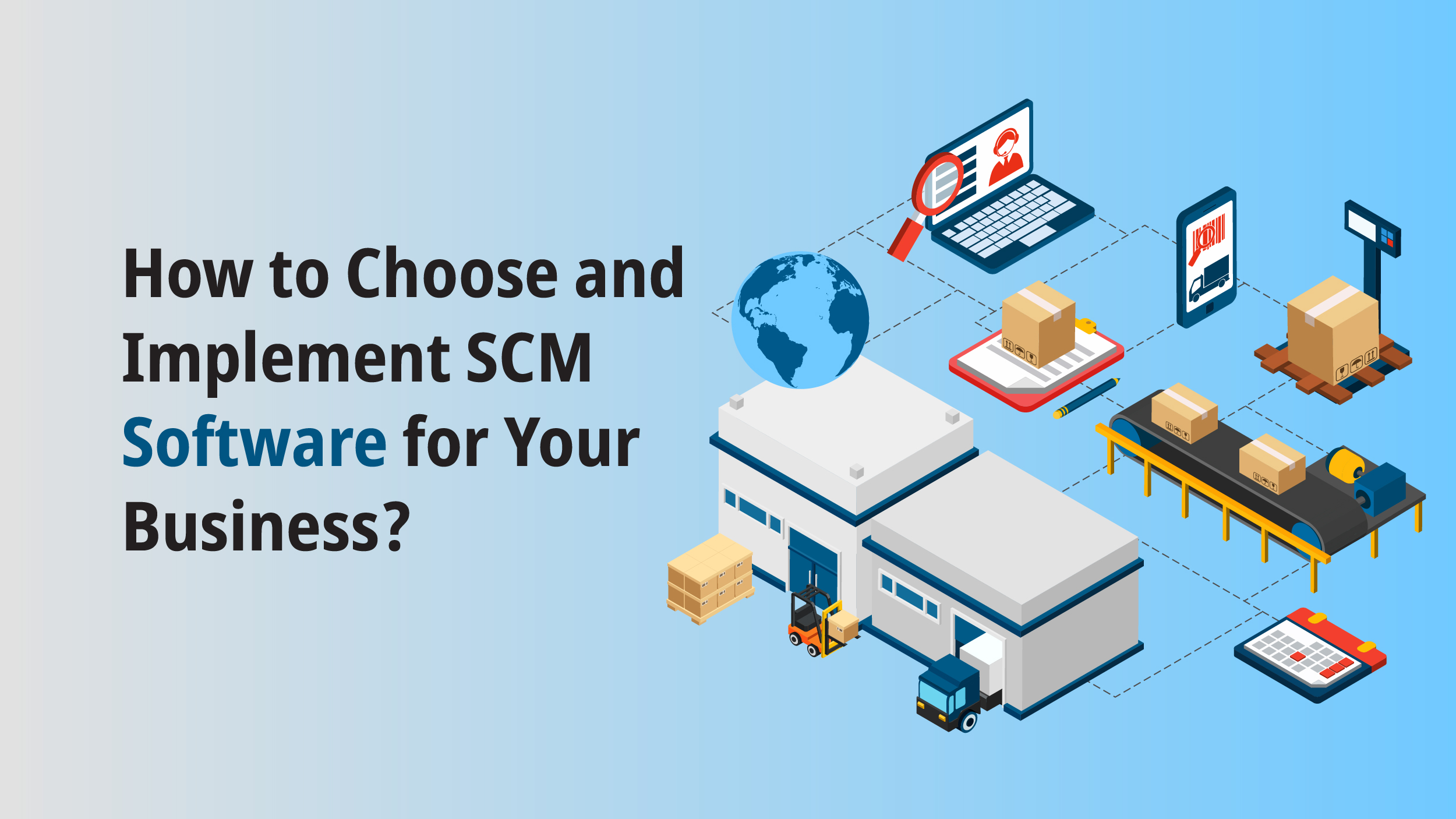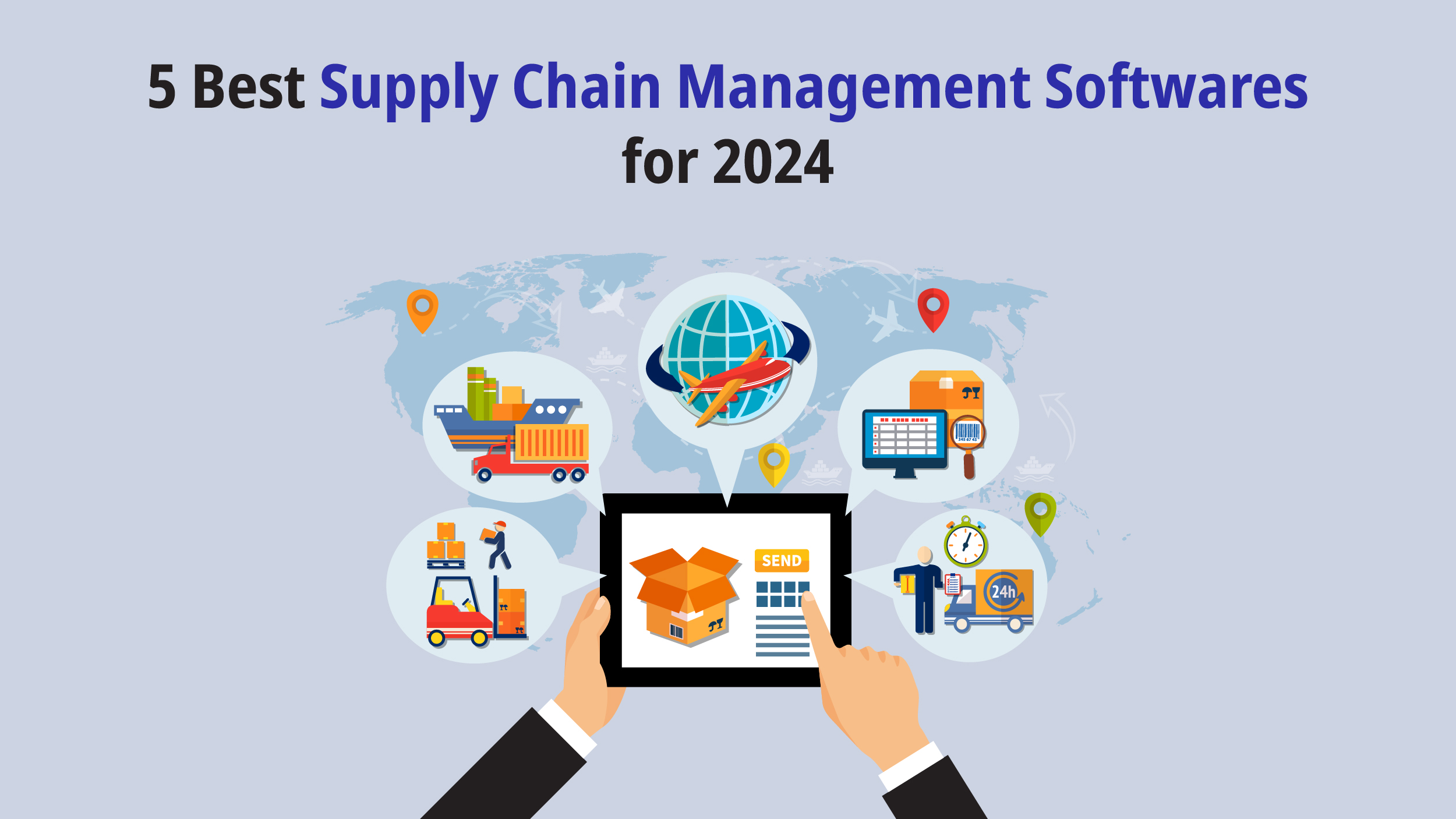In today’s complex and global business landscape, managing the supply chain efficiently and effectively is a significant challenge for organizations. The traditional manual methods of supply chain management often lead to inefficiencies, delays, and increased costs. This is where Supply Chain Management (SCM) software comes into play as a solution. Supply chain management software is designed to streamline and optimize the entire supply chain process, from procurement to production to distribution. Read on to know more about it.
What Is Supply Chain Management(SCM) Software?
Supply Chain Management software is a solution designed to address the challenges faced in managing the supply chain effectively. SCM software encompasses a range of features and functionalities that enable organizations to improve operational efficiency, reduce costs, minimize inventory levels, and enhance customer satisfaction. It facilitates seamless communication and collaboration between suppliers, manufacturers, wholesalers, transportation providers, and retailers.
Features of Supply Chain Management Software
Supply chain management software offers a range of features that help organizations streamline and optimize their supply chain operations. These features vary across different software solutions but generally include:
- Inventory Management: SCM software provides tools for tracking and managing the availability of raw materials, stocked goods, and spare parts. It helps with asset management, barcode integration, and future inventory and price forecasting.
- Order Management: SCM software automates purchase order processes, including generating and tracking purchase orders. It streamlines order fulfillment, improves accuracy, and enhances communication with suppliers.
- Supplier Relationship Management: SCM software enables organizations to manage their relationships with suppliers effectively. It includes features such as supplier performance tracking, supplier collaboration, and supplier risk assessment.
- Demand Planning: SCM software helps estimate future product demands based on past sales data and market trends. It supports demand-sensing capabilities to fine-tune forecasts in real-time, improving accuracy and responsiveness to customer demands.
- Logistics and Transportation Management: It facilitates efficient management of logistics and transportation activities. It includes features like route optimization, shipment tracking, carrier management, and freight cost calculation.
- Warehouse Management: SCM software provides tools for optimizing warehouse operations, including inventory tracking, space utilization, order picking, and packing. It improves efficiency, reduces errors, and enhances overall warehouse productivity.
- Supply Chain Analytics: It offers advanced analytics capabilities to gain insights into supply chain performance. It includes reporting, dashboards, and data visualization tools to monitor key performance indicators, identify trends, and make data-driven decisions.
- Collaboration and Communication: These software enables seamless communication and collaboration between supply chain partners. It includes features like document sharing, real-time messaging, and collaborative planning to improve coordination and information sharing.
Also Read: Top 7 Ways AI In Supply Chain Is Revolutionizing Productivity in 2024
How to Choose and Implement SCM Software for Your Business?

Selecting the right supply chain management software for your business can be challenging, as there is no one-size-fits-all solution. A comprehensive and expensive package may be unnecessary for a small business, while a limited solution may hinder a large enterprise’s growth. Here are practical tips to help you choose the right SCM software and avoid costly mistakes:
- Estimate the True Total Cost of Ownership: Consider all financial aspects, including support, customization, and upgrades. The final cost may be significantly higher than the initial purchase price.
- Start with Separate, Focused Modules: Instead of investing in a large, standalone SCM system, begin with a few modules that address major issues and bottlenecks in your supply chain.
- Be Mindful of Integrations: If implementing multiple standalone solutions, ensure they are integrated into one system to enable smooth data flow and comprehensive analytics.
- Consider Custom Development: Evaluate your existing software and explore how new SCM components and add-ons can complement it. Custom solutions tailored to your specific needs may be more cost-effective and valuable than off-the-shelf software with unnecessary features.
- Opt for Industry-Specific Tools: Choose supply chain management software designed for your industry to avoid costly and complex modifications. Industry-specific tools are more likely to meet your unique requirements.
- Explore Development Teams with Relevant Expertise: If there is no suitable solution for your niche, look for software development teams with experience in your industry. Their expertise can ensure efficient and effective implementation of SCM solutions tailored to your needs.
5 Best Supply Chain Management Softwares for 2024

Logiwa
Logiwa WMS offers a comprehensive suite of features, including order management automation and real-time syncing. Its open application programming interface (API) facilitates seamless communication with other supply chain planning software such as NetSuite and ecommerce platforms like Shopify.
NetSuite
NetSuite is a robust enterprise supply chain software suite that leverages predictive analytics for data-driven forecasting. With a focus on enterprise resource planning (ERP), its predictive tools enable market demand forecasting and inventory management. Owned by Oracle, NetSuite operates on the Oracle SCM Cloud platform and offers a flexible pricing structure based on optional features and user count.
Netstock
Netstock is tailored for small and medium-sized businesses seeking efficient demand forecasting and inventory replenishment. Through its cloud-based solutions, including Netstock Predictor and Predictor PLUS tools, it provides comprehensive capabilities for supplier management, inventory optimization, and sales and operations planning.
Precoro
Precoro’s supply chain management software prioritizes purchase approvals, offering transparent insight into the supply chain for all departments. This allows tailored approvals for specific supply chain decisions, such as raw goods purchases for production or materials for marketing campaigns. With finance capabilities and customizable approval workflows, Precoro enables effective supply chain management.
Magaya
Magaya Supply Chain is an integrated software solution catering to retailers, warehousers, and third-party logistics providers. Offering functionalities like order tracking, warehouse management, and financial management, Magaya ensures synced and consistent data across various business processes. Additionally, its integration with the Magaya Digital Freight Portal facilitates efficient monitoring of bookings, tracking, and reporting.
Bottom Line
Each software option offers unique features and capabilities tailored to different business needs, from order management automation to predictive analytics and inventory optimization. However, the true value lies in understanding your specific requirements and selecting a solution that aligns with your business goals and objectives. By investing in the right supply chain management software, businesses can streamline operations, enhance visibility across the supply chain, and ultimately drive efficiency and profitability. As technology continues to evolve, staying informed about the latest advancements in SCM software will be crucial for businesses looking to maintain a competitive edge in today’s dynamic marketplace.




